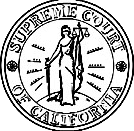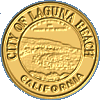Billy Greenwood of Laguna Beach, California in early 1984 was suspected of being a drug dealer. The police recieved word that there was a large shipment of narcotics on its way to Greenwood's house in trucks. Also, one of his neighbors complained to the police that there were nemerouse trucks passing through the neighborhood and stopping at his house. The police watched a truck stop by Greenwood's house and followed it to another suspected drug dealing location. On April 6, 1984, police investigator Jenny Strancer asked the trash collector to give the trash to her to search. When Strancer searched through the garbage and found evidence of narcotics. When police searched Greenwood's home they discovered some cocane and hashish. Greenwood and Dyanne Van Houten, were arrested but were released after they posted bail. Neighbors still complained about the trucks stopping at Greenwood's house. On May 4, 1984, investigator Robert Rahaeuser searched Greenwood's trash and found evidence of more narcotics.
The police searched his house and again arrested Greenwood for possesion of narcotics. Greenwood's lawyers said that the search was unconstitutional. He said that police would not have been able to get a search warrant if they did not illegally search through his garbage. The state of California said that he left it in plain sight and had no reason to expect that his trash would remain private. They asked the United States Supreme Court to decide what would happen.
I believe that the California Supreme Court made a wise desicion in agreeing with Greenwood. I think that the police violated the law in searching Greenwood's garbage and should not be alowed to use it as valid evidence.
One fact is that the police searched through Greenwood's personal trash can to get a search warrent for his house. Another fact is that after the police had already violated the law by searching through his trash can, they went out and did it again.
This case benefits society by informing the police how far they can go in investigating before it becomes an illegal act.




